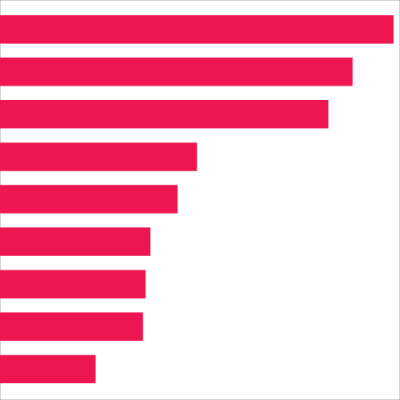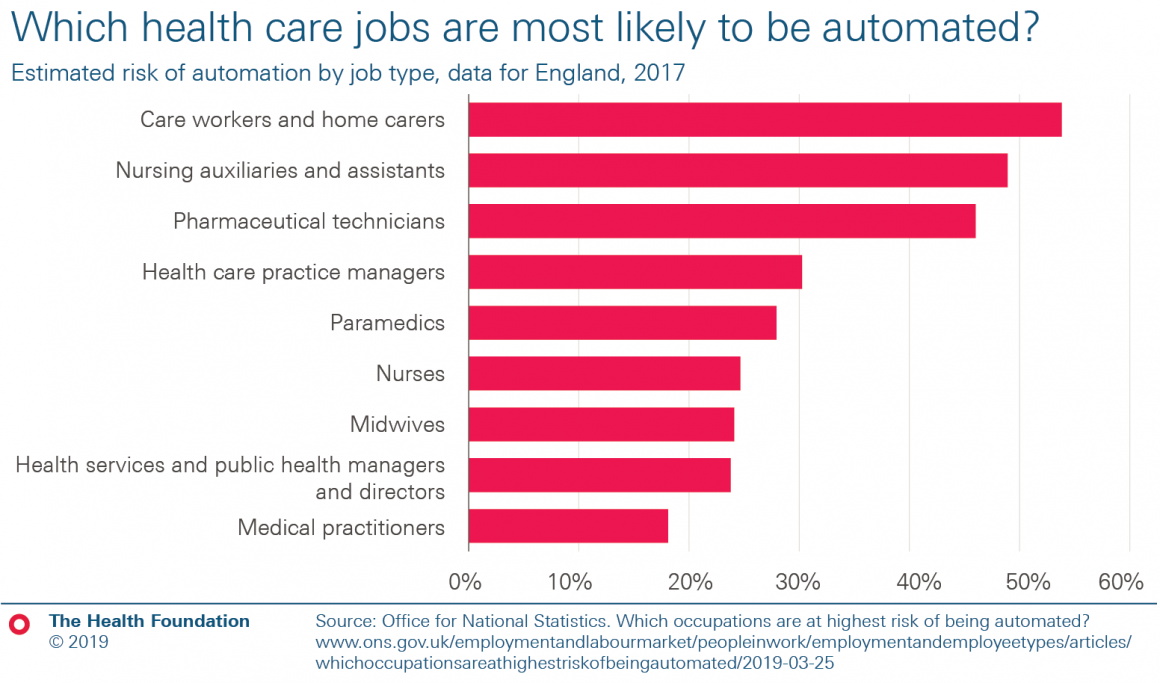Which health care jobs are the most likely to be affected by automation?
30 August 2019

Key points
- The automation of work will impact the future labour market. Office for National Statistics (ONS) analysis suggests that 7.4% of jobs in England are at high risk of automation (defined as 70% chance of being automated).
- The ONS analysis estimates that medical practitioners have an 18% probability of automation, compared to over 50% probability for care workers and home carers.
- However there is optimism about opportunities technology could bring too, such as creating new roles. There are also limits to the tasks that technology can perform—human skills, intelligence and perception are likely to be of enduring value.
As set out in our recent report on Shaping Health Futures, medical and technological advances will shape the future supply of health and social care services. For example, automation technologies could be used to deliver some administrative tasks in primary care, freeing up time for staff to be with patients. The Royal College of Surgeons predicts that robots, AI and three-dimensional printing will change the way surgery is delivered in the NHS.
Much has been written about the likely impact of automation and particularly the potential for job displacement. Office for National Statistics analysis suggests that 7.4% of jobs in England are at high risk of automation (defined as 70% chance of being automated). This is true even in health and social care, with ONS analysis suggesting medical practitioners have an estimated risk of automation of 18%, compared to over 50% risk for care workers and home carers.
The risk is not distributed evenly, either by job type or population group. Around 70% of roles at high risk of automation are currently held by women. People aged 20 – 24 are most likely to be at risk of having their job automated.
On the flipside, there is also optimism about opportunities technology could bring. Estimates of job displacement are based on the jobs we currently have. As some roles are replaced, others will be adapted and integrated with technology, and new ones will be created. As automation replaces routine tasks, people could be freed to undertake more rewarding work — as has been illustrated, for instance, through research on automation in primary care. There are limits to the tasks that technology can perform, where human intelligence and perception are still essential. The caring roles and skills that depend on human interaction — traditionally undervalued and underpaid — could become sought after. Human skills, intelligence and perception are likely to be of enduring value. How well industries and governments prepare the current workforce with the knowledge, skills and flexibility needed to adapt to new types of work will influence the impact of new technologies.
The health implications of working increasingly alongside new technologies are not well understood. For example, automation and robotic technology can remove people from undertaking hazardous tasks and lead to safer decision making. But they could also act to harm mental health by removing human interaction and agency from work.
Further reading
Work with us
We look for talented and passionate individuals as everyone at the Health Foundation has an important role to play.
View current vacanciesThe Q community
Q is an initiative connecting people with improvement expertise across the UK.
Find out more


